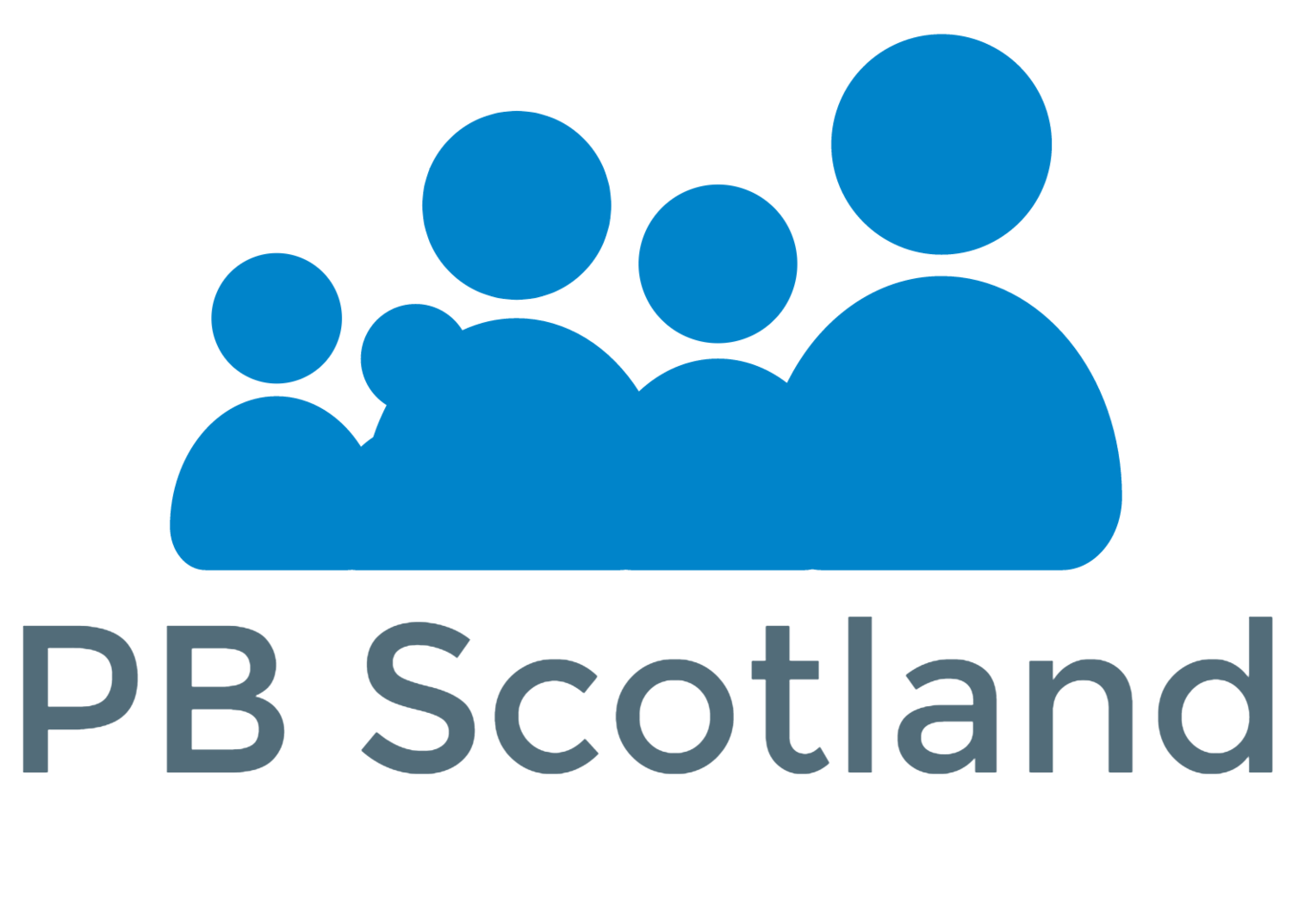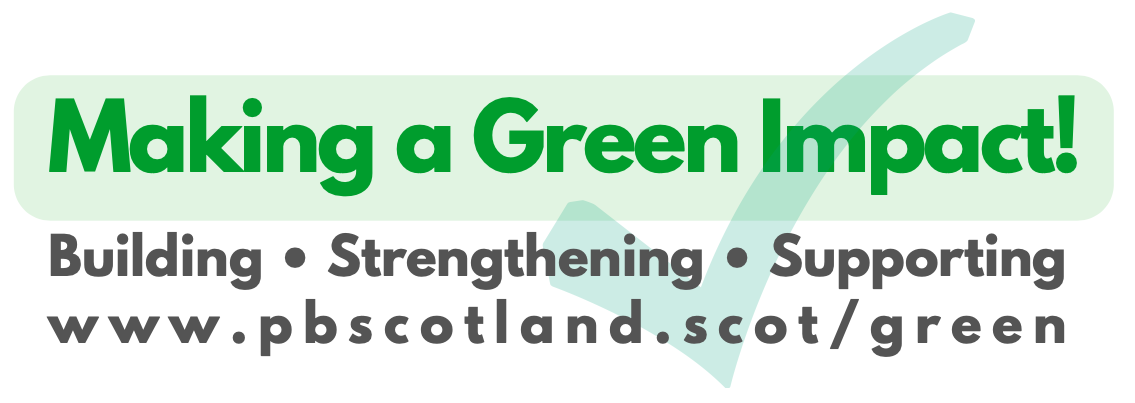About the Green PB Benefits Badge
The PB green benefits badge is recognition that a project funded through general PB activity (this being activity which was not specified as a targeted thematic Green PB process) has inadvertently contributed positively to the furthering of the Climate Change Agenda and Just Transition Outcomes.
To receive a PB Green Benefits Badge, qualifying Projects must be able to demonstrate that they have:
Encouraged the “greening” of their project activities and processes where possible. See more in the Greening PB Fact sheet.
Delivered projects/activities that have contributed to one or more climate adaptation and/or mitigation activities that contribute to one or more of Scotland’s Just Transition Outcomes. Examples that match the outcomes could include:
Inequalities example projects
Think activities that reduce inequalities that could be faced as a result of transitioning to less carbon intensive activity – access to affordable green products/equipment, reducing barriers faced by disabled people in the transition to net-zero, the use of natural landscape for physical activity and general wellbeing.
zero waste social enterprises that are affordable to all communities that they serve and provide a range of products and services that are suitable for the whole community.
Repurposing natural landscape in a way that is accessible to everyone in the community (disability friendly community gardens, allotments, paths etc)
Wheel and cycle schemes that have a range of equipment suitable for everyone (electric bikes, mobility aids)
Home energy example projects
Think changing to more energy efficient lightbulbs, educating on alternative heating sources and available grants, advice and/or fund to reduce home fuel and energy bills safely and realistically.
Local energy information roadshows where free energy efficient lightbulbs are available and advice from professionals is available on a number of achievable energy reducing actions.
Services that assist elderly people and those with disabilities in making energy saving changes to their homes (supplying and fitting lightbulbs, draft excluders, heat packs and warm boxes)
Education on alternative heating systems and support to explore finance options
Job, training and education example projects
Think green job energy fares with employers in the field, funding, promotion and advice on training related to green jobs, climate change education and promotion.
Advice and education sessions on climate change provided at local groups – potentially bringing in specialists to begin climate change conversations.
Work with schools and other local youth groups to encourage education on achievable climate action and encourage uptake within local communities (peer education, intergenerational projects, joint creation of local activities – i.e. young people working with care homes to create community gardens/recreational space etc)
Working with local educational establishments to identify clean job opportunities and encourage uptake of available training and career pathways.
Food example projects
Think community food growing, improving access to healthy local food, reducing food waste, reducing carbon footprint by growing organically and better education on food preparation
Free community café provided to local residents, that uses donated and/or locally grown food for its core ingredients.
Cookery projects that educate on reducing energy whilst cooking as well as dietary changes that can impact on environment.
Community Gardens that grow produce to be used or dispersed locally for the benefit of the community of place.
Local economy example projects
Think projects that encourage asset sharing and/or leasing, upcycling, reusing, repairing and recycling
Local swap shop where people can exchange items free of charge or using a token credit system.
Upcycling workshops where people learn how to repurpose products, gain new skills and have access to needed equipment for loan or hire.
Repair projects where people learn how to repair their own goods or have access to skilled people who can do this on their behalf.
Transport / travel example projects
Think reduced car use, promoting the use of public transport, encouraging walking & cycling (active travel), accessibility to buildings, and pedestrian safety.
Project that refurbishes bicycles and donates/leases these to local people and provides proficiency training for young people as well as lobby for the better provision of cycle lanes.
Walking, wheeling or cycling groups that encourage like minded people to go out together as a group and promotes the benefit of reduced car use and social interaction.
Transport sharing schemes to reduce the need for single occupancy vehicle use – shopping buses or car pools etc.
Built environment example projects
Think the retrofitting of homes and building to maximise energy efficiency and the repurposing of buildings and land to allow adaptation for climate change.
Local community adaptations implemented to increase resilience against increased annual flooding – local concrete areas resurfaced with grass, building roofs developed etc – all to absorb more water and reduce threat of flooding.
Retrofitting of homes and community buildings to make them more energy efficient – could include heating systems and insulation
Adapting local community buildings to be prepared and ready to act as emergency response locations for local communities in the event of extreme weather events.
Natural environment example projects
Think upgrade or creation of greenspace, habitat restoration of peat bogs, tree planting, placement of nests, encouraging reintroduction of native flora and wildlife, community gardens and/allotments.
Woodland management projects that reimagine areas to maximise carbon capture and benefit local people (tree planting, bird nesting, access paths etc).
Community managed greenspaces containing projects designed and supported by local people which could include introduction of community gardens/allotments, wildflower planting, bird nesting, bat boxes etc)
Education projects within communities that identify actions that could be taken in their natural environment to offset carbon and provide increased local opportunities for involvement and action.





